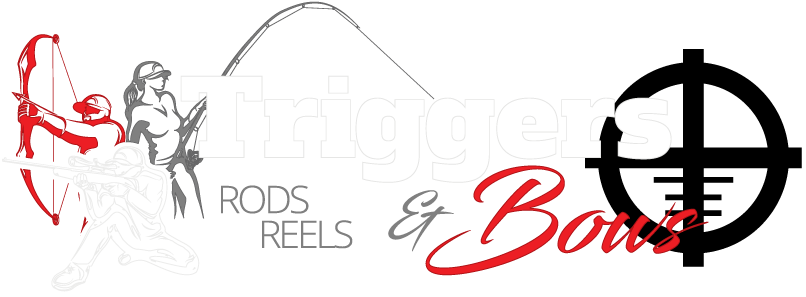Hunting season is here. While we are all eager to get into the bush, it is important to be prepared. Accidents happen even to the most seasoned hunter. A good survival kit could make all the difference in an emergency situation. Even if the hunt goes off without a hitch, there are still certain supplies that need to be brought along. We’ve split the “Must-Have Bush Kit” suggestions into a couple of categories: First Aid, Survival gear, and Hunter’s Kit.
First Aid Kit:
This element of the survival kit is a must. To be properly prepared for the type of accidents that can occur in the bush, it’s important to have more than a few band aids in your pack. First Aid Kits vary in size and contents. Here are a few suggestions for items that should be included:
- Self-Adhesive bandaging is a newer product on the market.
 This type of wrap sticks only to itself, the material is stretchy (which can give greater compression), and the weave of the material allows it to grip skin without sticking. This can replace tensor bandages in your bag and can be used instead of gauze wrapping or as a covering for gauze wrapping.
This type of wrap sticks only to itself, the material is stretchy (which can give greater compression), and the weave of the material allows it to grip skin without sticking. This can replace tensor bandages in your bag and can be used instead of gauze wrapping or as a covering for gauze wrapping.
- Gauze pads and band aids in various size, gauze wrap, and medical tape.
- Ibuprofen, Aloe Vera, antihistamines (allergy medications), and antibiotic cream are all useful things to carry in your pack.
- Pins, tweezers, cotton swabs, and a pair of scissors round out the basics in your First Aid Kit.

If you have first aid training, you may find other valuable items to add to your kit such as a tourniquet and splints.
Survival Gear:
If you’re out hunting and the weather shifts suddenly, there are a few items you can bring to help you be more prepared:
- A spare set of socks and gloves don’t add a lot of weight to a pack, but could make a big difference if your feet or hands get wet.
 If there is space in the pack, an extra sweater or shirt is never amiss.
If there is space in the pack, an extra sweater or shirt is never amiss.
- A thermal blanket is also a lightweight item that can help you stay dry and warm in a survival situation.
- Some rope, fishing line, or wire are incredibly versatile tools to include. Combined with a plastic sheet, these materials make a suitable shelter from inclement weather.
Staying warm and dry is critical in an emergency situation, but there are additional tools that can help the stranded hunter’s continued survival.
- Waterproof matches are always important, but a true survivalist should come prepared with more than one type of fire starter just in case the first method fails.
- A compass and a waterproof map of the area are necessities.
- Flashlight and spare battery (bring along a bit of steel wool for another way to start a fire).
- Clean water is important, but bottled water gets heavy and only so much can be carried. Water purification tablets or a portable water purifier can help a stranded hunter stay hydrated.
- A Metal mug/pot weigh more than paper or plastic, but these more durable containers can be used and reused over open flame without being damaged.
 A whistle and mirror are light weight tools that can be used to signal for help.
A whistle and mirror are light weight tools that can be used to signal for help.- A multi-tool and knife can make so many little jobs around a campsite easier.
- Emergency food like granola bars or protein bars.
Hunter Kit:
There are a few more items that, as a hunter, we feel are critical to have while in the bush. These items have less to do with survival. They are more important for ensuring your hunt is successful and making sure you can cart your kill out of the bush.
- Trail tape can help you mark out your route. You can follow it again another day or help you find your way home.
- A firearms cleaning kit that has at the minimum a bore snake and cleaning oil. If bad weather or muddy conditions prevail, a firearm may need cleaning before firing.
- A clean dry cloth to wipe down your firearm.
- Electrical tape to cover the end of your barrel, keeping it dry and clean inside.
- Field dressing gloves, wet wipes or a towel to clean up afterwards, and game bags to store your kill.

- A bone saw.
- Pencil or pen for completing tags.
 This type of wrap sticks only to itself, the material is stretchy (which can give greater compression), and the weave of the material allows it to grip skin without sticking. This can replace tensor bandages in your bag and can be used instead of gauze wrapping or as a covering for gauze wrapping.
This type of wrap sticks only to itself, the material is stretchy (which can give greater compression), and the weave of the material allows it to grip skin without sticking. This can replace tensor bandages in your bag and can be used instead of gauze wrapping or as a covering for gauze wrapping. If you have first aid training, you may find other valuable items to add to your kit such as a tourniquet and splints.
If you have first aid training, you may find other valuable items to add to your kit such as a tourniquet and splints.
 If there is space in the pack, an extra sweater or shirt is never amiss.
If there is space in the pack, an extra sweater or shirt is never amiss. A whistle and mirror are light weight tools that can be used to signal for help.
A whistle and mirror are light weight tools that can be used to signal for help.



